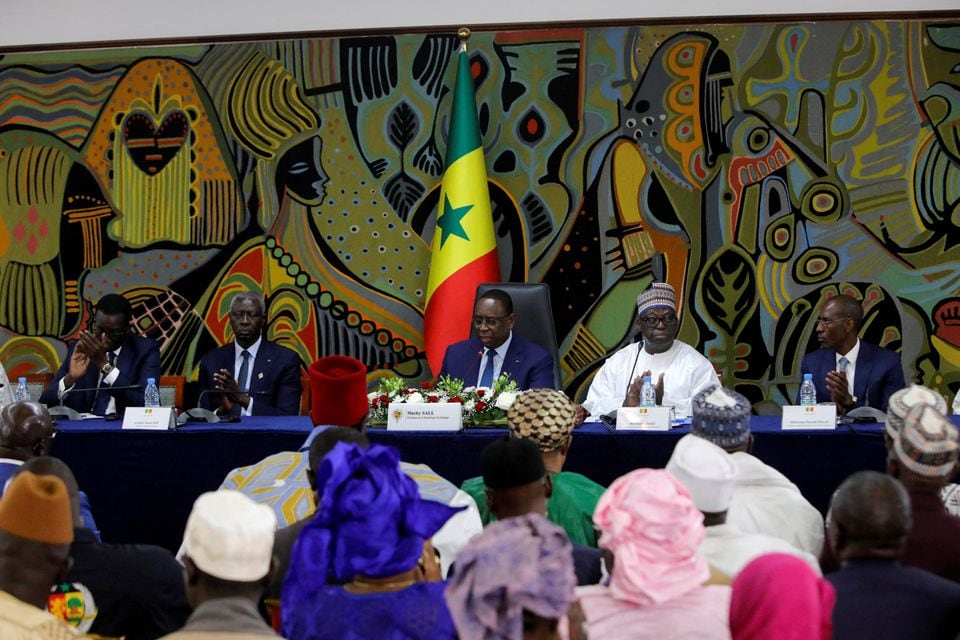President Macky Sall of Senegal has announced the postponement of the country’s upcoming presidential election, originally scheduled for February 25.
The decision, revealed in a televised address to the nation, was attributed to ongoing electoral disputes that, if not addressed, could lead to potential unrest.
The constitutional council’s recent decision to exclude several prominent candidates from the electoral list, including opposition figure Ousmane Sonko and Karim Wade of the Senegalese Democratic Party (PDS), has fueled discontent and raised concerns about the credibility of the election process.
President Sall acknowledged the troubled conditions in his address, expressing worry that they could undermine the integrity of the ballot.
The postponement, unprecedented in Senegal’s history, leaves the country in uncharted constitutional waters, sparking concerns from opposition groups and civil society about potential destabilization.
The opposition coalition, led by candidate Khalifa Sall, warned that delaying the vote would undermine the election’s legitimacy and likened it to an “institutional coup d’etat.”
President Sall, while not specifying a new date for the election, assured the public of a national dialogue to ensure a free, fair, and transparent electoral process.
He emphasized that the delay would not impact his decision not to seek a third term, a contentious issue that has previously led to protests in the normally stable West African democracy.
Senegal’s capital, Dakar, remained calm following the announcement, with no immediate signs of widespread protests. However, the opposition and political analysts expressed concerns that the postponement could reignite political uncertainty and civil unrest threats.
The influential League of Imams and Preachers of Senegal cautioned against the risks associated with delaying the vote, urging the head of state to prioritize free and transparent elections for the sake of the country’s stability.



